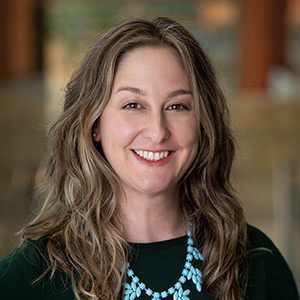The research community at the Institute includes visiting scholars, consultants, economists, research analysts, and research assistants. These scholars bring a diversity of backgrounds, interests, and expertise to research that deepens our understanding of economic opportunity and inclusion as well as policies that work to improve both.
To study why defendants fail to appear for their court dates and how to improve attendance, economist Aurélie Ouss’ research team went to court, spending hours seated in the gallery watching the proceedings.
“A lot of our policy apparatus has things like cash bail, pretrial detention, electronic monitoring—all these things to make sure that defendants show up to court,” said Ouss.
But Ouss quickly realized that absent defendants are only part of the picture. Police officers, victims, witnesses, and attorneys miss court as much or more often than defendants. “When you go to court and see the number of continuances that happen … ‘continued,’ ‘continued,’ ‘continued’... you just start to notice these patterns in a way that we wouldn’t have if we had just looked at the data for defendants.”
Ouss and her co-authors paired these observations with large administrative datasets from the Philadelphia Courts and the Philadelphia District Attorney’s Office. The resulting research prompted discussion across the criminal justice system about policy solutions that could improve court appearance dynamics for other contributors to case continuances, not just defendants.
Observing systems from within has been an integral part of Ouss’ broader body of work, which she has dedicated to studying the design of criminal justice institutions and policies that can make law enforcement fairer and more efficient. Her first experience was volunteering at a prison in college. While simultaneously taking a class in policy evaluation, she began to connect these two worlds. “I wanted to see if economic tools could answer these complicated causal questions. Do we actually know what works to reduce crime?”
As a postdoctoral researcher at the University of Chicago Crime Lab, Ouss partnered with several criminal justice agencies, including the New York City Police Department. Now in Philadelphia, she has been able to embed a team within the district attorney’s office, working on-site. These formal relationships protect data while allowing access to sensitive records about case outcomes and legal actor decision-making, such as plea offers that were rejected. They also allow for rapid feedback on study design to aid with policy implementation, said Ouss, and they offer participating jurisdictions access to research findings.
Looking forward, Ouss said she is interested in developing econometric tools and methods to better understand complex policy questions. For the rhetoric-laden field of criminal justice, her real-world, data-driven approach feels right on time.







